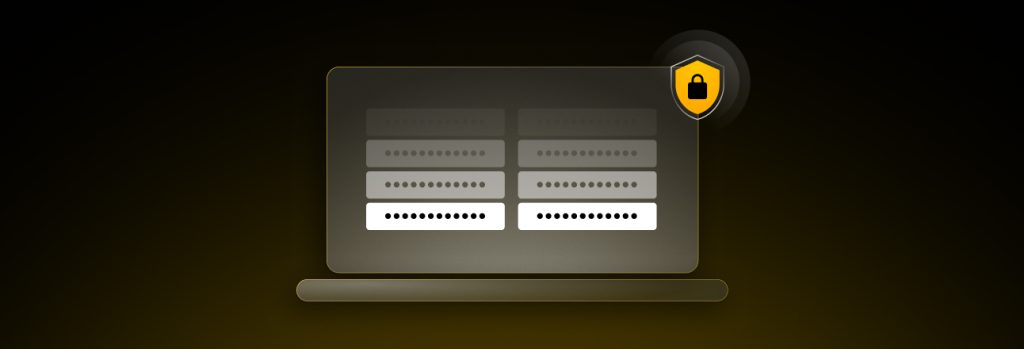The need for cybersecurity in Small and Midsize Businesses (SMBs) has never been more crucial. Any organization can suffer catastrophic effects from cyber attacks, but small businesses are particularly vulnerable. Unprepared small firms may experience tremendous financial consequences as well as damage to their reputation, productivity, staff morale and much more when a cyber attack occurs. When establishing cybersecurity processes and strategies, it is crucial to understand the risks. Read on to find out how SMBs can improve their cybersecurity and more.
Train Your Employees in Cybersecurity
The first step of improving cybersecurity in your SMB is training your employees on the most basic knowledge of cybersecurity. Here are the most important tips your employees should know.
Having Strong Passwords
Having strong passwords is just the start of keeping your work credentials secure. With a strong password, you have to keep in mind good password hygiene. In order to avoid cyber attacks, malware infection, social engineering, account takeovers and other threats, it is important to follow best practices for creating secure passwords.
Avoid Using Free Public WiFi
If you have remote employees, explain the dangers of using public WiFi. A common exploit of public WiFi is man-in-the-middle attacks. This is where cybercriminals operate as “middlemen” placing themselves between you and the connection point to collect your data and redirect it to a different location. You never know who is watching or intercepting your online data.
Use a VPN
If employees must use public WiFi, it’s best to use a Virtual Private Network (VPN) to secure their information. With a VPN, your data is encrypted, your IP address is hidden to safeguard your online identity and you are able to utilize open WiFi networks with minimized risk. VPNs add a layer of privacy and security to the public network by establishing a private, encrypted network within it.
1. Use a Password Vault
Because everyone was forced to move their work, shopping, schooling and leisure activities online due to the pandemic, many people made poor password choices, such as using the same password for many accounts. Passwords and personal information are protected from scammers with the use of password vaults. The purpose of a password manager is to safely store online credentials, help you log into accounts automatically and generate strong and unique passwords. A master password is used to lock down an encrypted vault where these passwords are kept.
2. Use Zero-Knowledge Encryption
Invest in a password manager for your business that utilizes zero-knowledge encryption. The only person who can access any data kept in your password manager is the end-user. The client’s device performs all encryption and decryption operations instantly, and the data is encrypted both in transit (TLS) and at rest on the password manager like Keeper’s infrastructure (AES-256).
3. Use Email Security
Email security prevents unauthorized access, data loss and compromise of email accounts and conversations. By adopting policies and utilizing tools to defend against harmful threats like malware, spam and phishing attacks, organizations may improve the security of their email systems.
4. Follow the Principles of Least Privilege
Organizations frequently struggle with how to give employees the authorizations and access they need to carry out their duties effectively while preventing access to other sensitive data. By removing unneeded privileges that could be abused by either a hostile insider or an outsider who is able to compromise any specific employee, the goal is to decrease the “attack surface.”
5. Enforce Employee Password Requirements
Review with your employees the basic requirements for changing your passwords or creating strong passwords in work training.
Enable Added Protection
1. Use 2FA/Multi-factor Authentication
A crucial security measure used to stop account takeovers and associated threats is multi-factor authentication. MFA seeks to prevent cybercriminals from accessing crucial services, data and other assets using compromised credentials by demanding a second form of authentication.
2. Secure Your Files
The majority of cloud storage companies store files in plain, unencrypted text, making it possible for cybercriminals to view any user files if the service is compromised. Using a platform that encrypts the files while being stored will help ensure they’re secure.
3. Secure Your Messaging
To reduce the risks related to data leaks and unencrypted communications, businesses of all sizes should implement a hyper-secure enterprise messaging system.
4. Secure Your WiFi Networks
Before you find yourself faced with a network breach, take precautions to ensure your network is secure by setting up a separate network for your public and private networks. Have employees connect their work machines to the private network and their personal devices to the public network.
Cybersecurity for Your Small Business
Even if you run a small business and believe that you have no data worth stealing, cybercriminals still see you as a target and take anything they can. Avoid being an easy target by investing in a password manager today. Keeper Business is designed for your small business and safeguards your company’s passwords with a super-secure and user-friendly vault that your employees will love.


